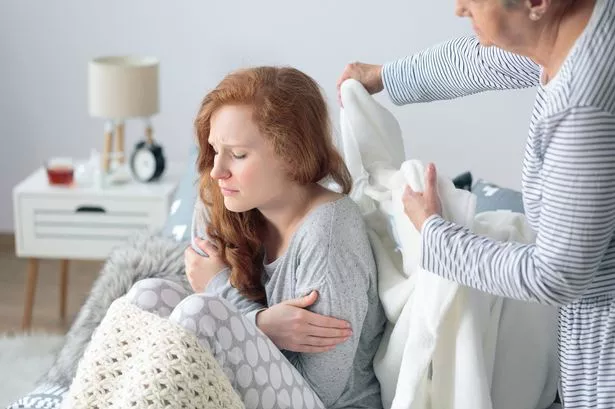The National Health Service (NHS) is grappling with an unprecedented convergence of respiratory illnesses, dubbed a “quad-demic,” comprising COVID-19, Respiratory Syncytial Virus (RSV), norovirus, and influenza. This confluence of viruses is placing immense strain on healthcare resources, prompting NHS leaders to issue urgent advice to the public: prioritize self-care to mitigate the spread of these infections and alleviate pressure on the healthcare system. This encompasses a range of preventative measures, from rigorous hand hygiene and respiratory etiquette to staying home when unwell and considering vaccination where applicable. The aim is to empower individuals to protect themselves and their communities, thereby reducing the overall burden on the NHS.
The current “quad-demic” presents a unique challenge due to the simultaneous circulation of multiple respiratory viruses. Each virus, while distinct, shares similar transmission routes and symptoms, making accurate diagnosis and targeted treatment more complex. COVID-19, though less prevalent than in previous waves, continues to circulate, with new variants emerging and posing ongoing risks. RSV, typically affecting young children and older adults, is surging in cases, leading to increased hospitalizations for severe respiratory complications. Norovirus, a highly contagious gastrointestinal illness, adds another layer of complexity, spreading rapidly in closed settings and causing significant disruption. Influenza, a seasonal respiratory illness, is also experiencing a resurgence, further compounding the burden on healthcare services. The simultaneous impact of these four viruses creates a perfect storm, driving demand for healthcare resources to unprecedented levels.
The NHS’s plea for enhanced self-care emphasizes the crucial role individuals play in managing this multi-pronged viral onslaught. Practicing meticulous hand hygiene, including frequent and thorough handwashing with soap and water or using alcohol-based sanitizers, is paramount in disrupting the transmission of these viruses. Adopting proper respiratory etiquette, such as covering coughs and sneezes with a tissue or elbow, prevents the spread of respiratory droplets containing viral particles. Staying home when experiencing symptoms of illness, regardless of the suspected cause, is crucial to prevent further transmission within communities and workplaces. This self-imposed isolation can significantly curb the spread of these highly contagious viruses.
Vaccination remains a cornerstone of protection against several of these circulating viruses. The COVID-19 vaccine continues to offer significant protection against severe illness, hospitalization, and death, particularly for vulnerable populations. Influenza vaccines are readily available and highly recommended for individuals at higher risk of complications, including older adults, pregnant women, and those with underlying health conditions. While no specific vaccine exists for RSV or norovirus, preventative measures like hand hygiene and isolation remain effective in reducing their spread. By staying up-to-date with recommended vaccinations, individuals contribute to a collective shield of immunity, protecting both themselves and the wider community.
The NHS’s call for enhanced self-care extends beyond individual actions to encompass community-level responsibility. Promoting awareness of the “quad-demic” and its potential impact within families, workplaces, and social circles is crucial. Encouraging open communication about symptoms and preventative measures can foster a culture of collective responsibility, empowering individuals to make informed decisions to protect themselves and others. Supporting vulnerable individuals within communities, such as the elderly or those with compromised immune systems, by offering assistance with errands or ensuring access to necessary resources, can help minimize their exposure to these viruses. This collaborative approach strengthens community resilience and reduces the overall burden on the healthcare system.
The current “quad-demic” underscores the critical importance of preventative measures and proactive healthcare practices. By embracing the NHS’s advice on self-care, individuals can play a significant role in mitigating the spread of these viruses and protecting themselves, their families, and their communities. This collective effort, combined with ongoing public health initiatives and vaccination programs, can help navigate the challenges of this unprecedented viral convergence and ensure the sustainability of healthcare resources during this demanding period. The message is clear: individual actions can have a profound impact on public health, and by working together, we can effectively mitigate the impact of this “quad-demic” and safeguard the health of our communities.














